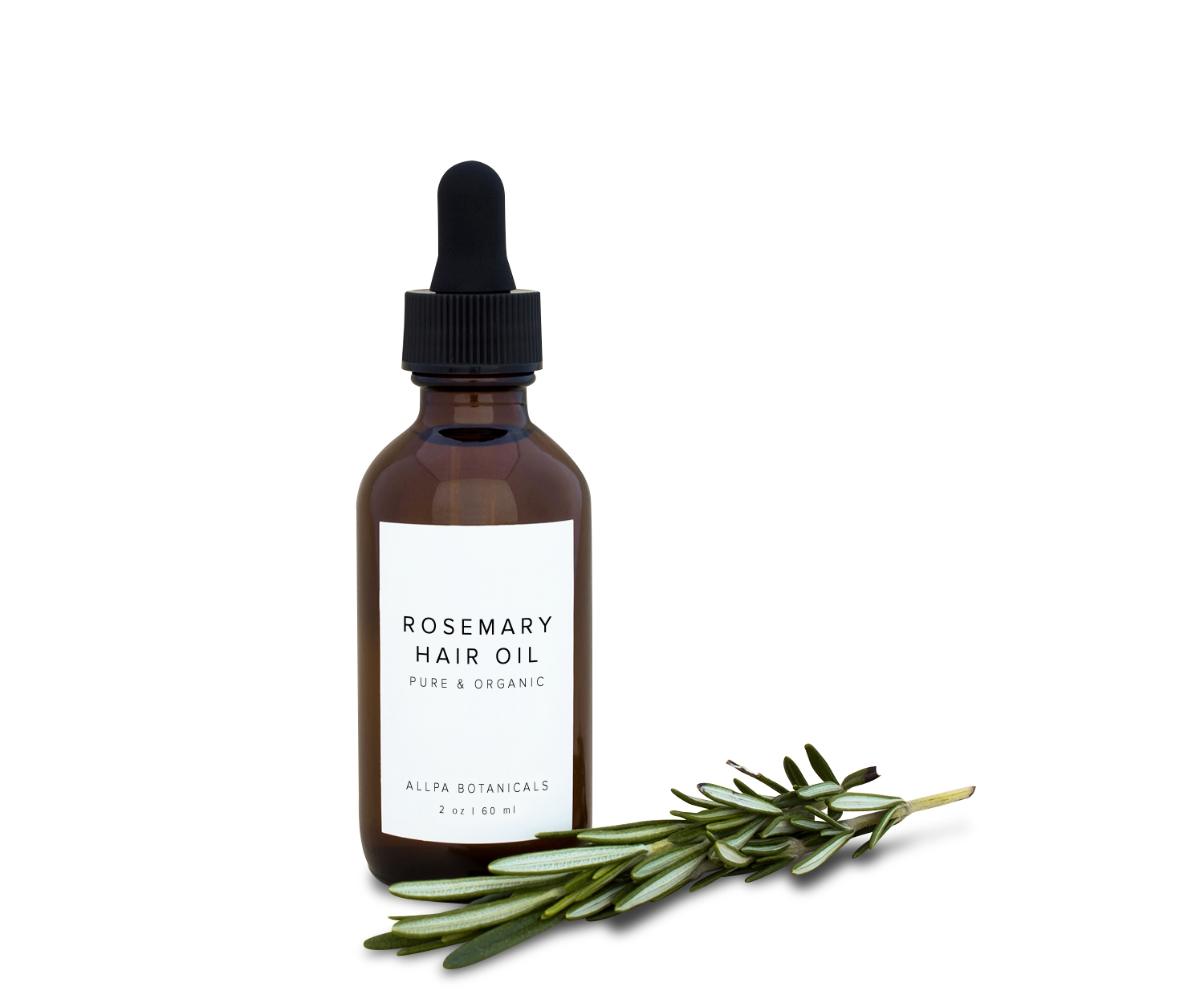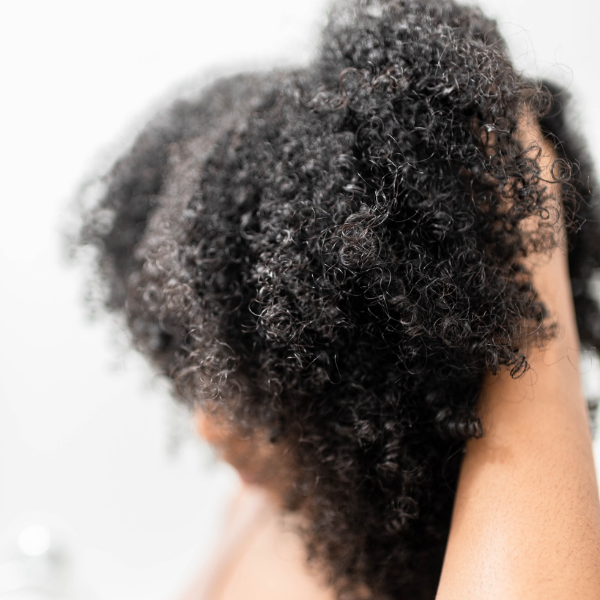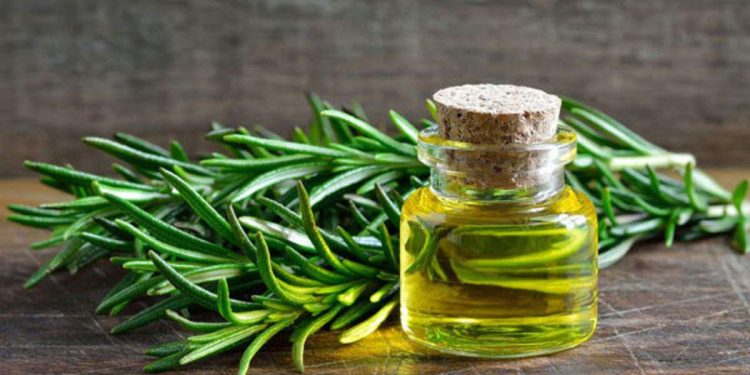When it comes to hair loss, rosemary oil is one at-home solution we haven’t gone over very much. For most of us, having natural hair or being on a healthy hair journey isn’t new.
So quite naturally, we know all the little tips and tricks people typically use to regrow hair.
Jamaican black castor oil this, and deep condition and trim that—we’ve heard and tried it all.
And to be honest, some of us have probably tried rosemary oil.
However, have you really checked out the benefits of this powerful essential oil? There are tons.
So let’s get into how it works, how to use it, and most importantly, what to expect after you start the process.
What are some facts about Rosemary oil?

Well, let’s start with one huge fact that a lot of people don’t know: Rosemary oil is equivalent to 2.5 percent minoxidil.
If you don’t know, minoxidil is the same active ingredient in Rogaine that promotes hair growth and length retention.
In other words, rosemary oil is comparable to Rogaine in many ways when used for hair loss recovery and overall healthy hair growth in general. Pretty cool, huh?
Aside from that, this powerful essential oil is known for its anti-inflammatory and antifungal properties because one of it’s natural key ingredients, carnosic acid, is known to heal and restore irritated or injured skin tissue.
While anti-inflammatory properties are a win for everyone, adding rosemary oil to your hair regimen is especially beneficial for those of you already dealing with scalp inflammation like dandruff, scalp psoriasis, and even itching and irritation from high manipulation styles.
All in all, rosemary oil isn’t some miracle oil! However, it is an effective, inexpensive, all-natural alternative to whatever hair loss treatment their currently pushing on the market.
So….how do I use an essential oil on my hair?

There are a variety of ways in which you can use rosemary oil for hair growth. One obvious way is massaging a few drops of the essential oil directly onto your problem areas.
However, this isn’t exactly recommended as it can cause some intense itching and burning—even if you don’t have sensitive skin or aren’t allergic to rosemary or its byproducts.
The best course of action is picking your favorite carrier oil and adding a few drops of rosemary essential oil to the mix.
What oil you use doesn’t matter as long as it’s effective for you! It can be anything from jojoba and sweet almond, to JBCO and coconut oil.
If that’s not your speed, you could even incorporate the oil in your shampoos and conditioners. Or even put some in your hair masks, hot oil treatments, and other all-natural hair products that don’t already have it in the ingredients.
If all else fails, stop by Mielle Organics or Allpa Botanicals and try out their super effective (and affordable!) rosemary oil based growth products.
What should I expect?

Like with all hair growth treatments, you must always be realistic about what you can achieve and how long it’ll take to achieve it.
Factors such as health conditions, hormones, genetics, diet, and overall hair habits play a role in what certain products can do for you.
So before you jump on the bandwagon, assess your hair by asking yourself a few important questions, and answering all of them honestly.
How fast does your hair typically grow? What has worked for you in the past? What do genetics have to say about this?
Are you willing to be patient and consistent if you don’t see hair growth as fast as you had anticipated?
Again, rosemary oil isn’t a miracle treatment so asking yourself these questions is absolutely necessary if you want to truly gauge what it can do for you.






